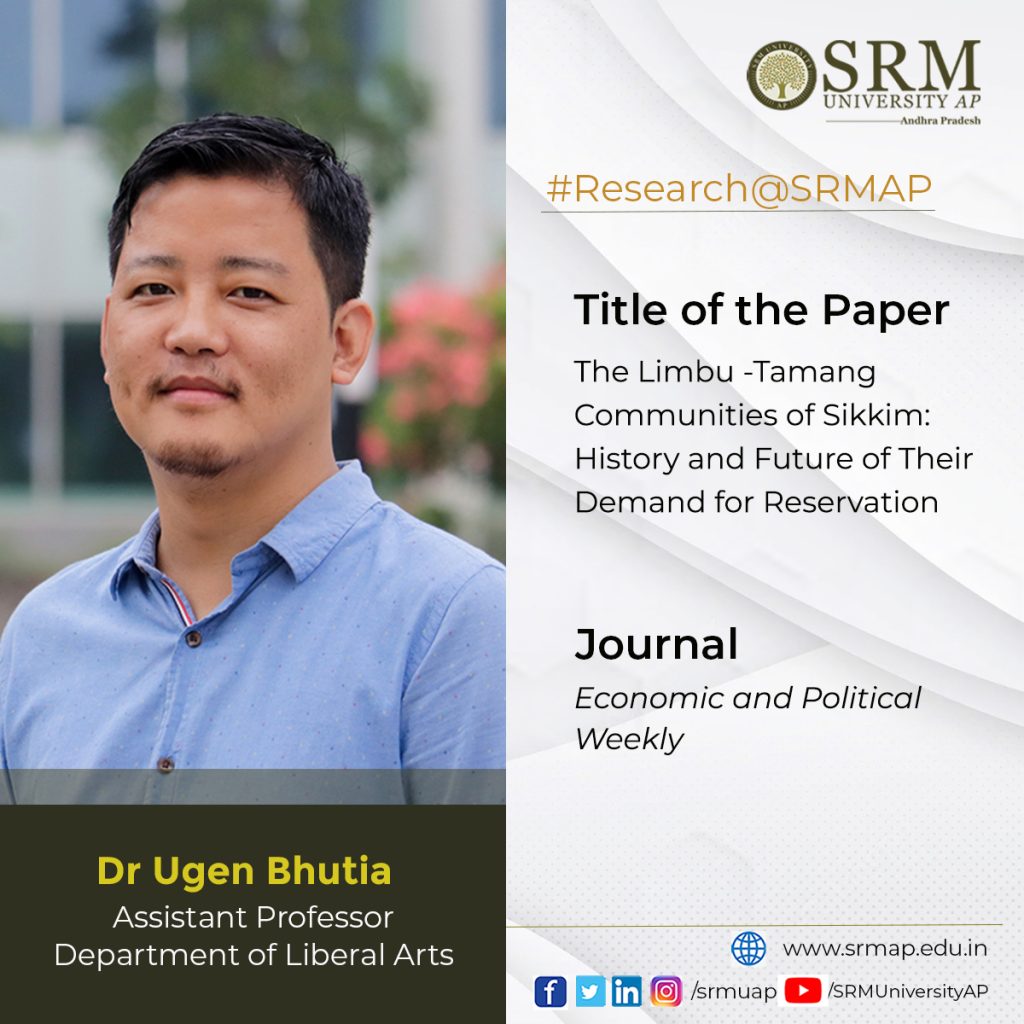 It is a prerequisite for a country like India showcasing vast cultural, social, political and economic diversity, for adopting an unprejudiced reservation system to ensure equal and just representation of varied communities in the political decision-making process of the country. But many communities that have been historically disadvantageous(SC/ST) still struggle to receive their right to representation. Dr Ugen Bhutia, Assistant Professor, Department of Liberal Arts, has published a paper titled “The Limbu–Tamang Communities of Sikkim History and Future of Their Demand for Reservation” in the Journal Economic and Political Weekly. The paper provides a comprehensive outlook on the complex history of the communities in Sikkim and past events that have cumulated in their demand for representation in the democratic polity of the country. The future direction of the demand for reservation and its prospective outcomes have also been emulated.
It is a prerequisite for a country like India showcasing vast cultural, social, political and economic diversity, for adopting an unprejudiced reservation system to ensure equal and just representation of varied communities in the political decision-making process of the country. But many communities that have been historically disadvantageous(SC/ST) still struggle to receive their right to representation. Dr Ugen Bhutia, Assistant Professor, Department of Liberal Arts, has published a paper titled “The Limbu–Tamang Communities of Sikkim History and Future of Their Demand for Reservation” in the Journal Economic and Political Weekly. The paper provides a comprehensive outlook on the complex history of the communities in Sikkim and past events that have cumulated in their demand for representation in the democratic polity of the country. The future direction of the demand for reservation and its prospective outcomes have also been emulated.
Abstract
Since its merger in 1975 with the Indian union, one of the major sociopolitical issues in Sikkim has been the demand for reservation in the state legislative assembly for two communities—Limbu and Tamang. The demand of reservation for the Limbus and Tamangs crystallised in Sikkim when these communities were notified as Scheduled Tribes under the Scheduled Castes and Scheduled Tribes Orders (Amendment) Act, 2002. The history and future of this political demand has been analysed.

